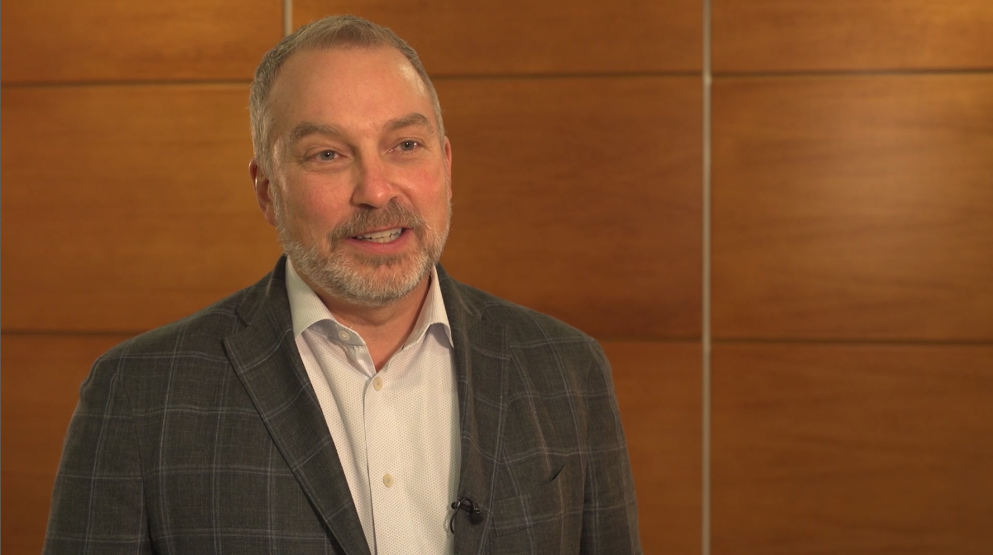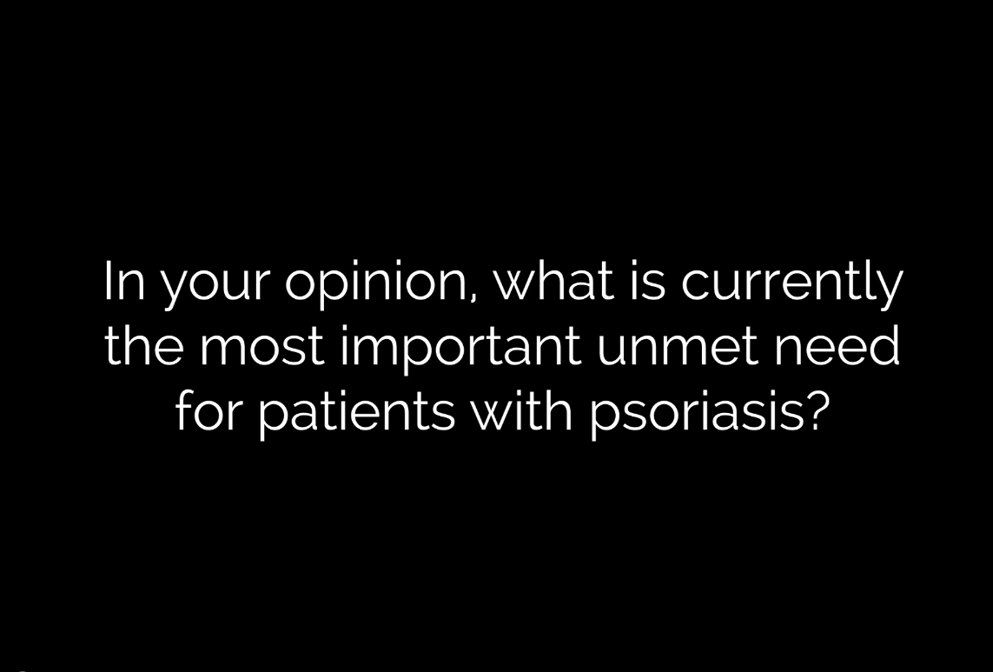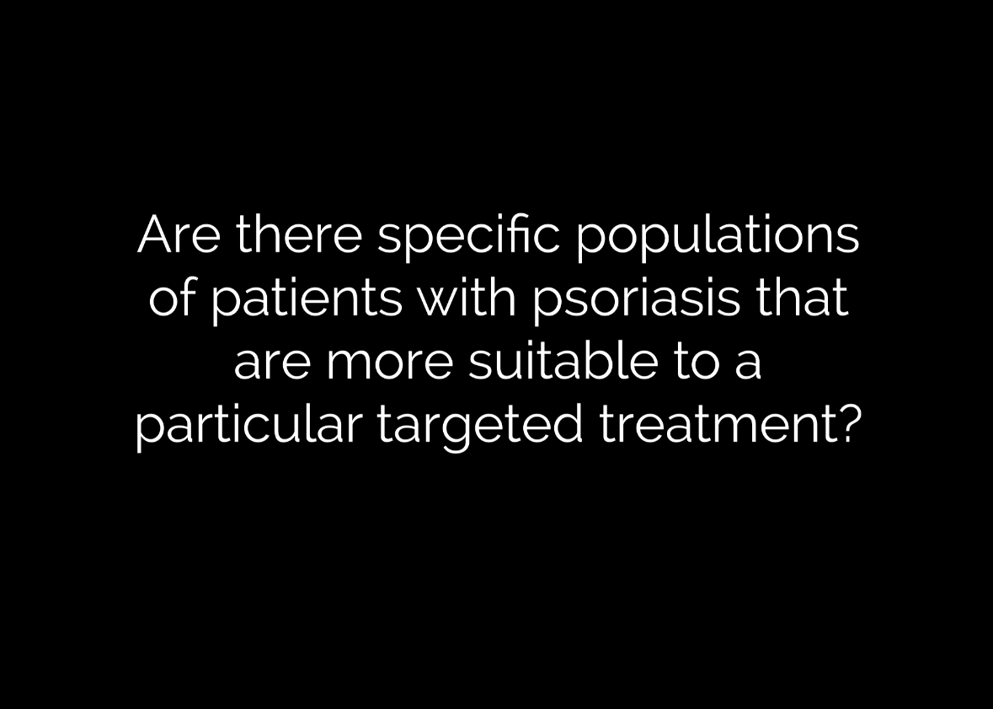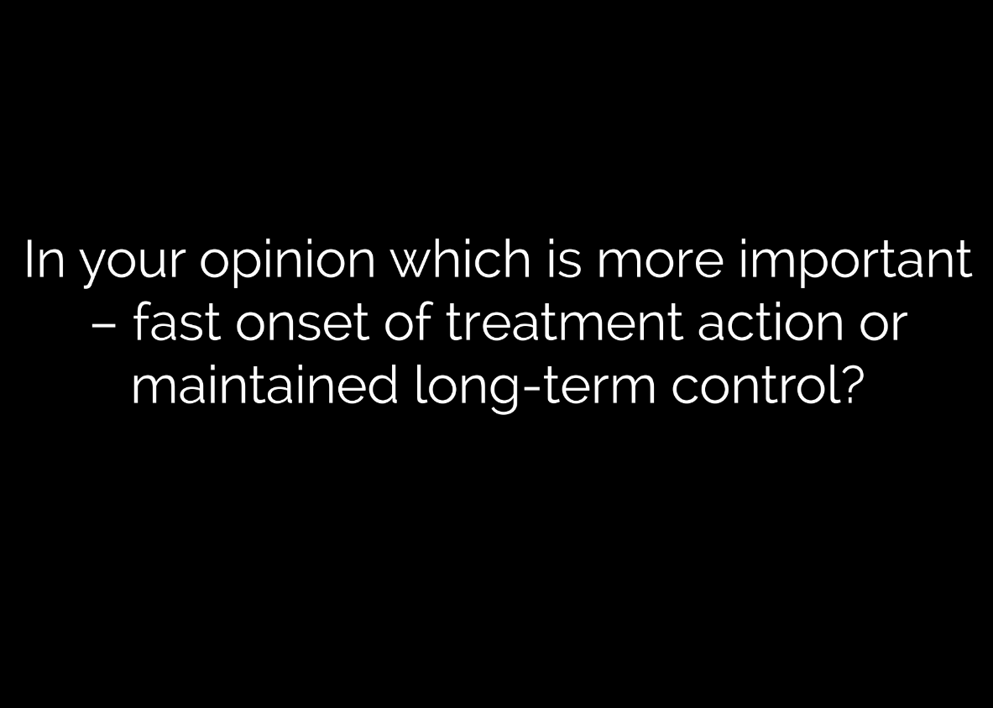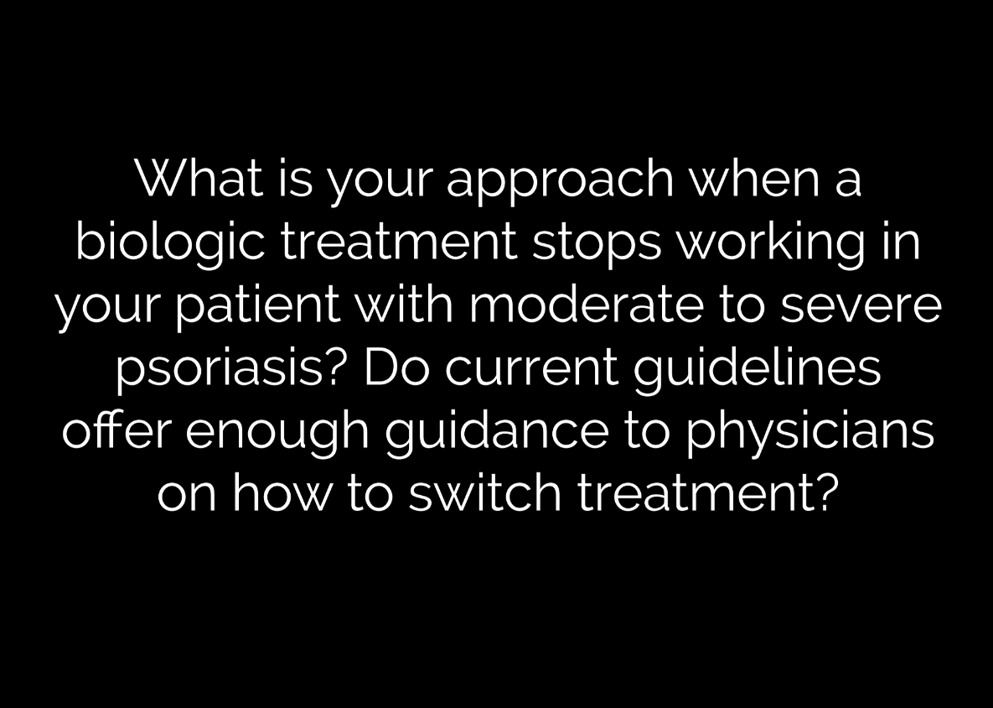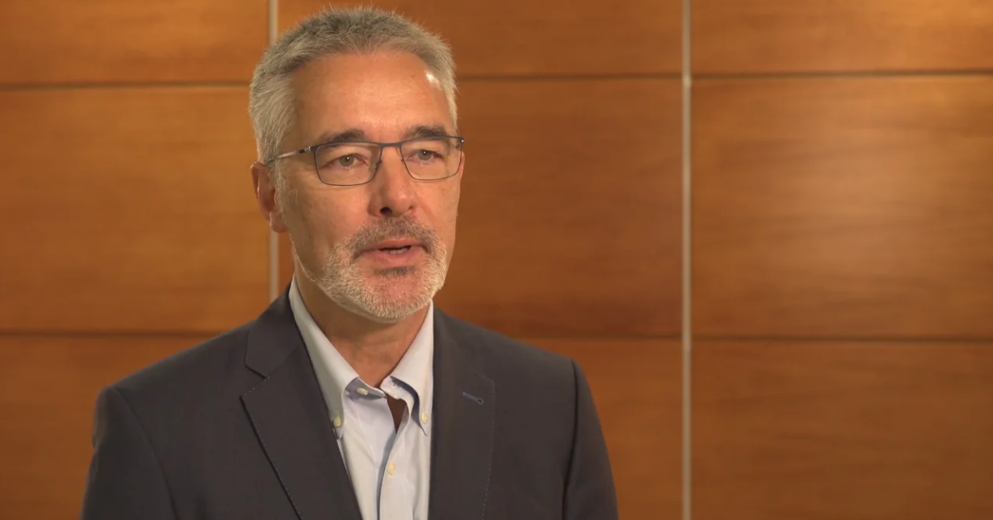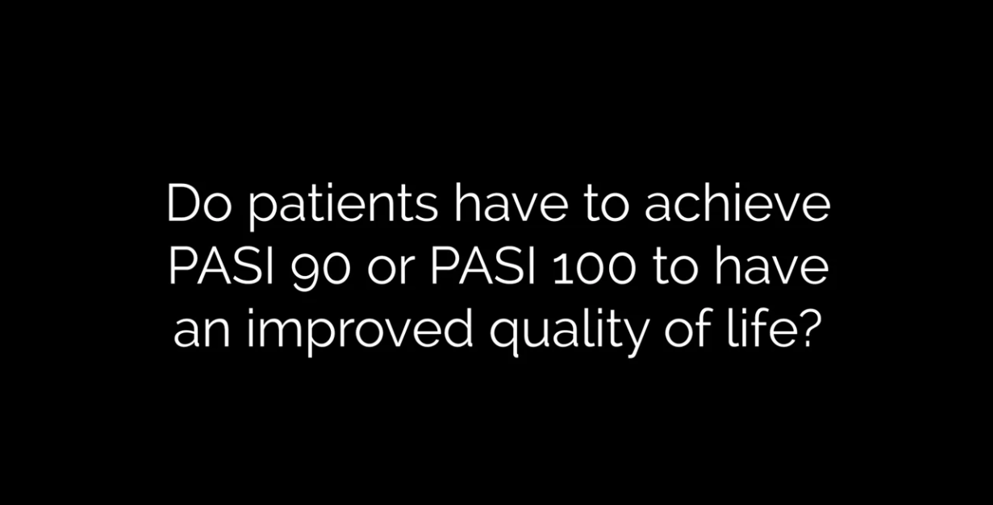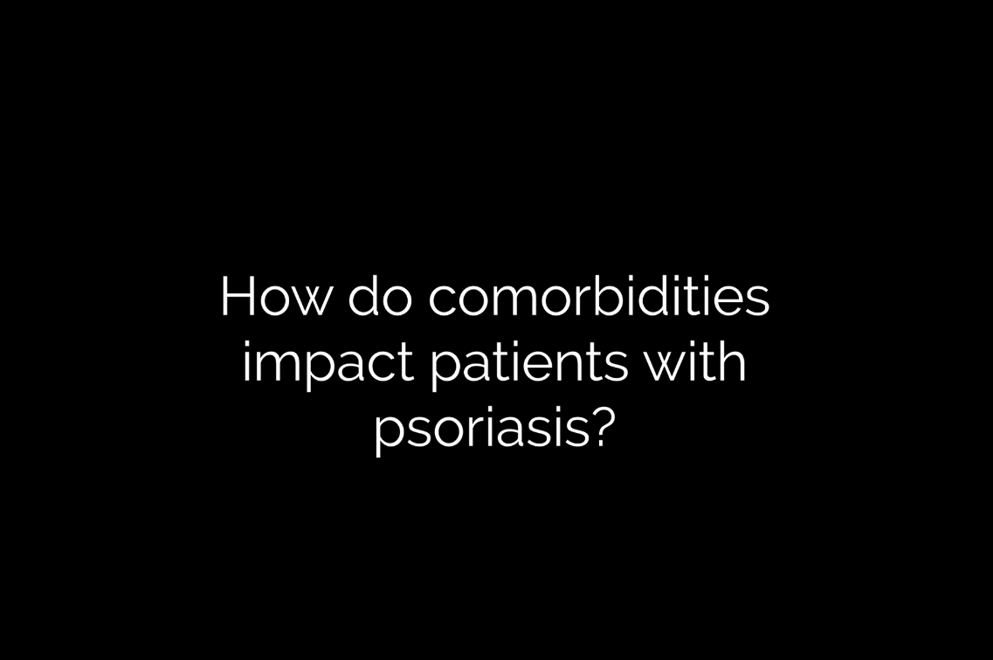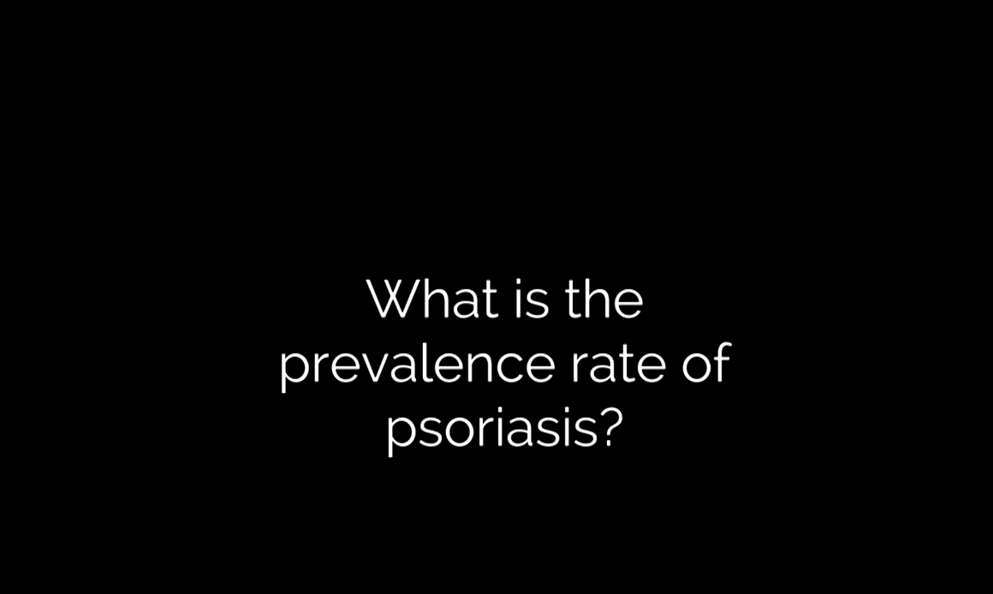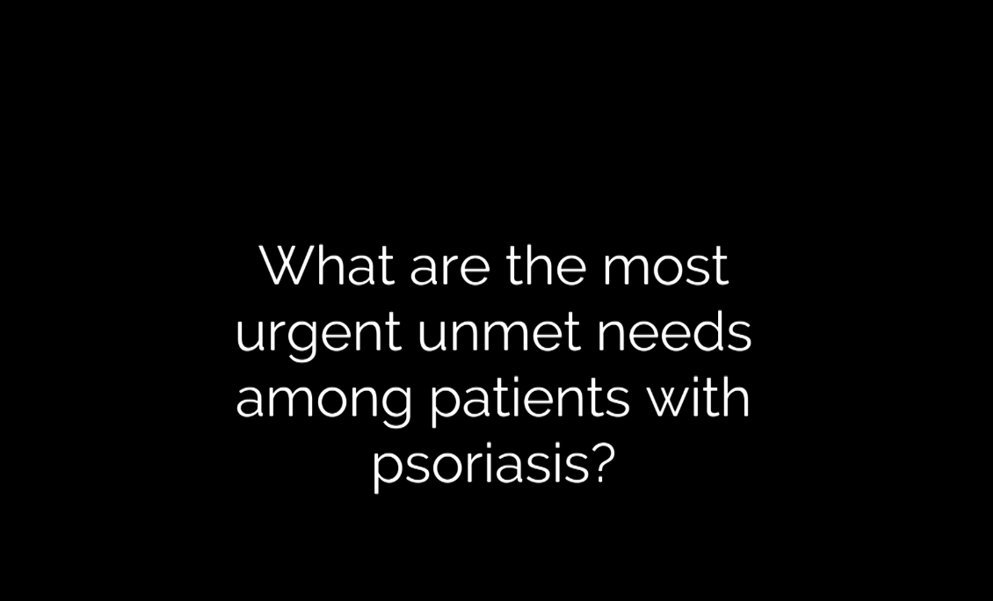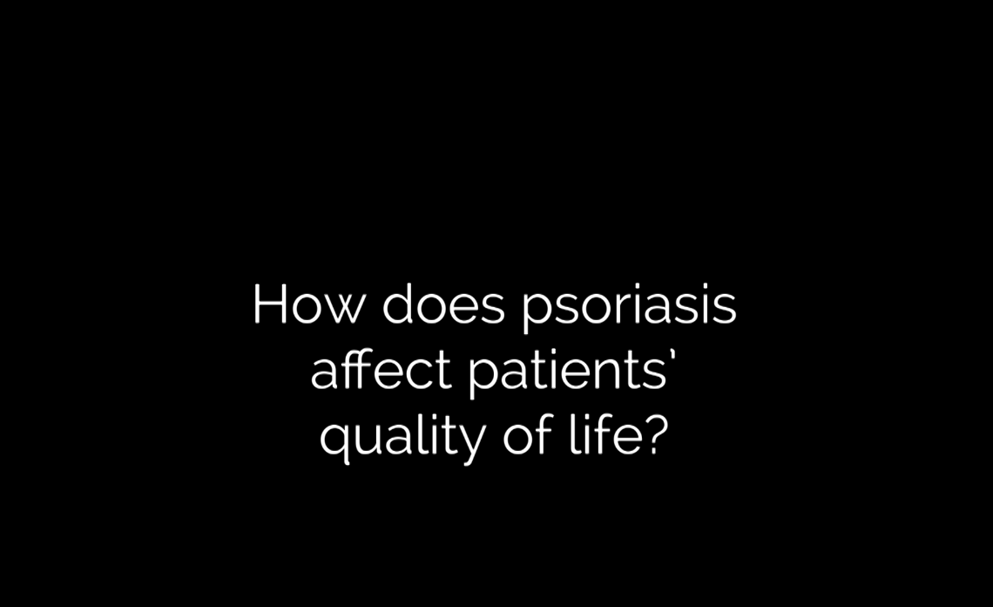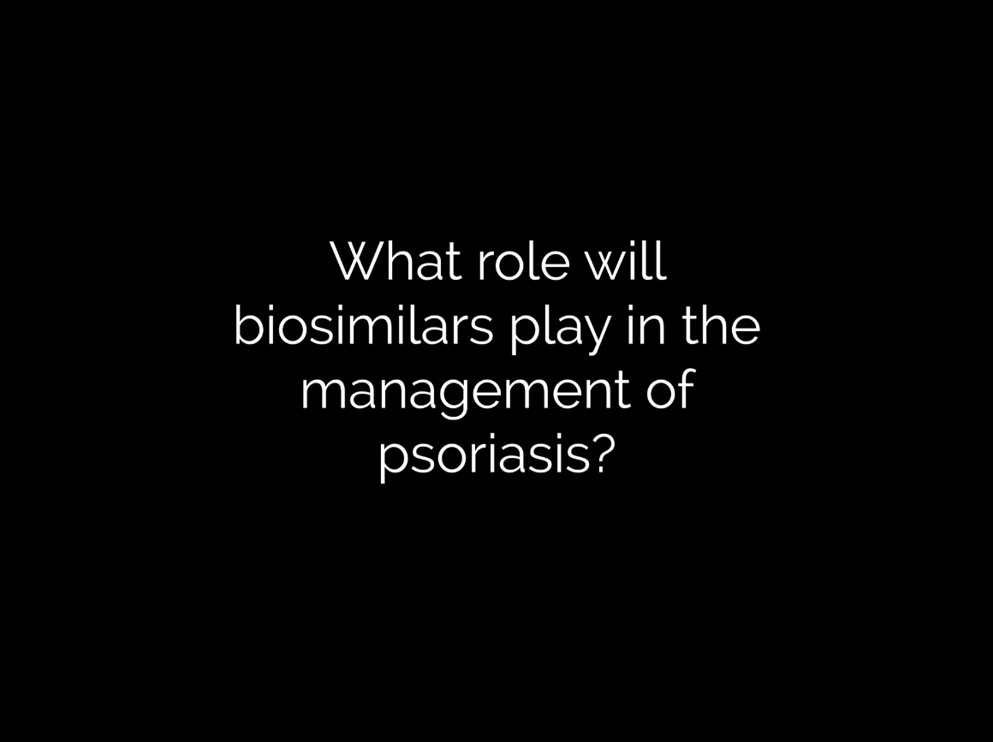
Expert Insights
Expert Insights
In the past decade, an explosion of new treatments, including those with novel mode of actions, have revolutionised the psoriasis armamentarium. How many patients can expect to benefit from these new treatments? What are the ongoing unmet needs among patients with psoriasis? How have the new therapies influenced the current treatment guidelines and what can we expect in the near future? We interviewed Professor Andrew Blauvelt and Professor Ulrich Mrowietz at EADV 2019 and Professor Paolo Gisondi and Professor Rolland Gyulai at EADV 2018 to address these topics and much more.
In this Section
Expert insights from EADV 2019 and the evolution of 'psoriasis-targeted' treatments
At the EADV Congress 2019 we interviewed psoriasis key opinion leaders Professors Andrew Blauvelt and Ulrich Mrowietz about their experience and opinions. They discuss the challenges in treating psoriasis and some of the principles in selecting treatment. See the below video selections.
Our featured video asks Professor Andrew Blauvelt to discuss the importance of head-to-head studies in providing targeted psoriasis treatments. See below:
Professor Blauvelt - Targeted treatment for psoriasis
Professor Blauvelt introduces the new-generation of targeted treatments for moderate-to-severe psoriasis and stresses the importance of head–to–head studies.
Meet Andrew Blauvelt, Professor of Dermatology at Oregon Health & Science University and President of the Oregon Medical Research Center. Find out why his family history enables him to empathise with his patients.
Professor Blauvelt discusses the unmet needs in psoriasis generally and his frustration that while there are effective biological treatments, patients are not always able to access them.
Professor Blauvelt discusses physician and patient education that is important to challenge the initial perception that biologics had safety issues. Find out how the evolution of ‘psoriasis-targeted’ treatments dispels this myth.
Professor Blauvelt describes the recent important head-to-head studies in psoriasis, including the ECLIPSE study which compared an IL-17 and and IL-23 inhibitor over 52 weeks.
Professor Blauvelt introduces clinical factors that dermatologists should consider when selecting a targeted treatment for mild to moderate psoriasis. In particular, he stresses the need to move beyond stratifications based on severity to patient-centric care.
The most appropriate targeted treatment may dependent partly on the patient’s age and their likelihood of good adherence, Professor Blauvelt says. According to Professor Blauvelt, psoriatic arthritis may be more common than many dermatologists realise and is important when individualising treatment.
Professor Blauvelt reviews why considering the speed of a targeted treatment’s onset of action and the likelihood that the response will be maintained long term helps dermatologists tailor treatment to each patient.
Whether to switch a patient to a new treatment is often a vexed question. Professor Blauvelt describes his patient-centric approach.
Professor Blauvelt highlights the new biologics and oral agents around the corner for treating moderate-to-severe psoriasis.
Professor Mrowietz discusses the unmet needs among people with the psoriasis-spectrum disorders, including palmoplantar pustulosis.
Modern treatments offer the opportunity to markedly improve outcomes in most psoriasis patients. However, Professor Mrowietz points out, dermatologists face several challenges when delivering optimal pharmacological care.
Professor Mrowietz discusses the growing recognition that psoriasis may be a systemic, rather than purely dermatological, disease. In particular, he points out, vascular inflammation can increase the risk of cardiovascular disease.
Professor Mrowietz argues that clinical studies now need to determine whether managing the dermatological manifestations of psoriasis also improves comorbidities. However, the benefits of older treatments may remain unexplored.
The introduction of biologics for psoriasis transformed treatment for many patients. Nevertheless, Professor Mrowietz suggests, non-biological systemic treatments still have an important role for selected psoriasis patients.
Professor Mrowietz argues that PASI 100 may be an impractical outcome measure to employ in everyday clinical practice.
Professor Mrowietz reports that most psoriasis patients welcome the opportunity to start biologics despite requiring regular injections.
Professor Mrowietz offers his view of the highlights for psoriasis care presented during the 2019 EADV meeting.
Professor Andrew Blauvelt - Meet Andrew Blauvelt, Professor of Dermatology at Oregon Health & Science University and President of the Oregon Medical Research Center. Find out why his family history enables him to empathise with his patients. During the 2019 European Academy of Dermatology and Venereology (EADV) Congress, epgonline.org spoke to Professor Blauvelt about the benefits of targeted treatments in mild to moderate psoriasis, the factors that dermatologists should consider when agreeing a treatment with patients and the ideal approach to switching treatment. Professor Blauvelt partly bases his patient-centric approach on his family’s experiences of living with psoriasis.
Professor Ulrich Mrowietz - Meet Professor Ulrich Mrowietz, Head of the Psoriasis Centre at the University Medical Centre Schleswig-Holstein, Kiel Campus. Find out his experience in treating psoriasis and why he finds the diverse field of dermatology so interesting to work in. During the 2019 European Academy of Dermatology and Venereology (EADV) Congress, epgonline.org spoke to Professor Mrowietz about unmet needs in psoriasis care, the increasing recognition that psoriasis is a systemic disease and the evolution of pharmacological management. Professor Mrowietz also discussed the importance of considering clinically relevant outcomes and including comorbidities in clinical studies.
Expert insights from EADV 2018
epgonline.org asked Professors Rolland Guylai and Paolo Gisondi some key questions regarding the care of patients with psoriasis. Watch the short video clips below to find out how they responded.
How do comorbidities impact patients with psoriasis?
Professor Paolo Gisondi
Director of the Section of Dermatology and Venereology, University of Verona, Italy
Professor Gisondi specialised in Dermatology and Venereology in 2002 at the University of Parma and began his scientific work at the Institute Dermopatico Immaculate. In 2014, he was made associate Professor of Dermatology at the Department of Medicine, Section of Dermatology and Venereology, University of Verona, Italy and in 2018 he was elected as Director of the School of Specialisation in Dermatology and Venereology.
Professor Gisondi’s scientific interest is in clinical and epidemiological research, particularly in inflammatory skin diseases. A special interest has been dedicated to psoriasis and psoriatic arthritis and their management with conventional and biological drugs. Most of his studies focus on the association between psoriasis and co-morbidities, particularly metabolic alterations and arthritis. Professor Gisondi is a board member of the European Academy of Dermatology and Venereology (EADV) as well as being a member of the Italian Society of Dermatology (SIDEMAST), and the Group for Research and Assessment of Psoriasis and Psoriatic Arthritis (GRAPPA).
Disclosures: Professor Paolo Gisondi has collaborated with AbbVie, Celgene, Ely Lilly, Jansen, Mylan, Novartis, Pierre Fabre and UCB.
Professor Rolland Gyulai
Director and Chair of the Department of Dermatology, Venerology and Dermato-oncology, University of Pécs, Hungary
Professor Rolland Gyulai’s main clinical interests are immunodermatology and oncodermatology. His specialism in the field has led to him authoring over 60 scientific papers, 8 book chapters, and holding 4 patents as well as receiving several prestigious awards.
Along with his research commitments, Professor Rolland Gyulai is a member of the board of directors, and the President-elect of the Hungarian Dermatological Society, and the President of the German-Hungarian Dermatological Society (DUDG). He is also a member of the Scientific Board of the Skin Inflammation & Psoriasis International Network (SPIN), and the European Dermatology Forum (EDF).
Disclosures: Professor Rolland Gyulai has acted as an advisor for AbbVie, Bristol-Myers Squibb, Janssen-Cilag, MSD, Novartis and Roche. He has also been an investigator in clinical trials supported by Abbvie, Bristol-Myers Squibb, Galderma, Janssen-Cilag, MSD, Novartis and Roche and received lecture and consultancy fees from AbbVie, Celgene, Janssen-Cilag, MSD and Roche.
This content has been developed independently by Medthority who previously received educational funding in order to help provide its healthcare professional members with access to the highest quality medical and scientific information, education and associated relevant content.


